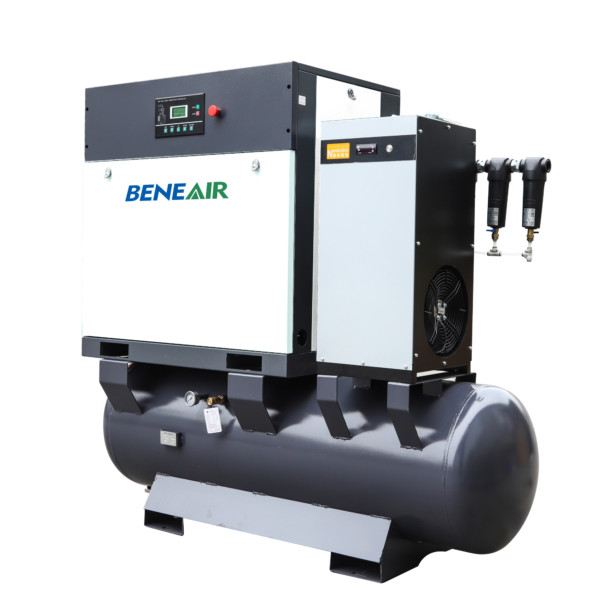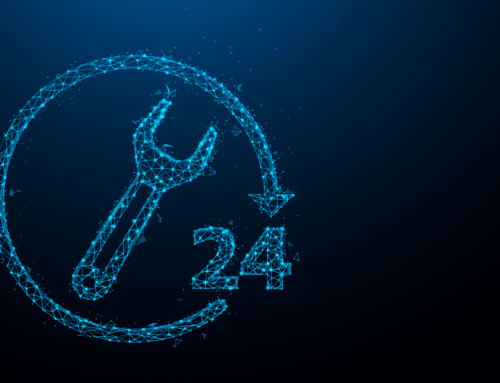An air compressor is a device that compresses air and then stores it in a tank. Air compressors are used in a variety of applications, including construction, automotive repair, and manufacturing. If you’re having problems with your air compressor, it may be due to one of several issues. In this article, we’ll discuss some common problems with air compressors and how to troubleshoot them.
Most Common Problems with Air Compressors
Most Common Problems with Air Compressors
The following is a list of generic air compressor issues, as well as some quick solutions that might help you fix your problem.

| Problem | Details | Solution |
|---|---|---|
| Overheating |
An air compressor that overheats may shut off automatically to prevent some sort of damage. Often, this is because the tank of the compressor has not been properly drained after use. If you run your compressor dry, it can cause major problems; first and foremost being overheating. Check your owner’s manual for information about when and how to drain your tank properly. |
Make sure to properly drain your tank after each use. |
| Clogged Filter | This is one of the more common problems with air compressors; clogged filters can occur when moisture or other types of debris accumulate inside the filter. Many filters are easily accessible within the casing, which makes them easy to clean (either manually or with a machine). | Clean the filter regularly. |
| Bad Valve | A bad valve can cause all sorts of problems with your air compressor, including low air pressure, loss of power, and even complete shutdown. The most common symptom of a bad valve is noise; you’ll likely be able to hear it when the compressor is running. | Have a professional inspect and/or replace the valve. |
| Noisy Operation | An air compressor that is noisy to operation may be due to bad bearings. This can often happen after long periods of use; the constant shaking and jarring of your unit can cause the bearings to wear out and become loose. | Replacing these bearings (if they are removable) can solve this problem for the short term, but the issue will likely crop up again down the road. |
| Compressor Humming | If your compressor is humming, this usually indicates a lack of power or too much resistance caused by something in the tank. If your air compressor is humming but nothing else seems to be wrong, it’s probably being caused by an object within the tank that is causing too much pressure for the motor to overcome. | Power down your air compressor and use some sort of device (i.e., broom handle) to remove whatever is making noise from inside the tank. Check for objects that may have fallen into the tank during operation, as well. Extending or reducing hose lengths can also cause certain types of compressors to vibrate at their resonance frequency, which may cause them to hum continuously if not properly maintained regularly. |
| Breaker trips | If your breaker trips, it’s likely due to an overload on the circuit. This can be caused by several factors, such as a clogged filter or a dirty tank. |
Clean the compressor and/or replace the filter.
|
| Leaking Tank Seal | If your tank seal is leaking, it will cause an increase in pressure (which can cause other problems) as well as a loss of suction. You will likely be able to see the fluid leaking from somewhere within the tank itself. | Replace or tighten your seal (if it is removable). |
| Turbo Mode Flicker | Many air compressors have what’s known as a “turbo mode.” This puts extra stress on the motor, which can cause failures. One of the most common symptoms of turbo mode is a flickering light.If your compressor is vibrating constantly, it may be due to a problem with the motor or bearings. This can often happen after long periods of use; the constant shaking and jarring of your unit can cause the bearings to wear out and become loose. | Replacing these bearings (if they are removable) can solve this problem for the short term, but the issue will likely crop up again down the road. |
| Loss of Suction |
If your air compressor loses suction, it may be due to a clogged filter or drain cock. It is normal for some loss of suction to occur in an operating compressor; however, if this problem persists over long periods, it may be time to invest in a new compressor. |
Replace the air filter element |
| Hissing Air Flow |
If your air compressor is hissing, this may indicate a problem with the tank seal. |
Check for leakage and tighten or replace parts as necessary. |
|
Compressor Loses Power When Loaded |
If your compressor loses power when loaded, there could be a problem with the motor. This could be caused by several factors, such as a dirty tank or low oil level. | Clean the compressor and/or check the oil level. |
| Hot Emissions | If you notice a vibration or hear a high-pitched sound coming from your air compressor, the only thing that could be causing it is your hot emissions. In most cases, this is caused as a result of extreme dirt inside and can cause overheating as well as damage to other internal components. | If you have confirmed that no other external factors are causing the problem, it may be time to clean the dirt inside (and possibly other components) to ensure that your unit is running safely and properly. |
| Milky Oil discharge | If your compressor’s oil has become milky in color, it may be time to drain the tank and replace your filter. |
Replacing these components can solve this issue in the short term, but you should regularly inspect them to ensure that the milky discharge does not return later down the road. To keep your compressor in good condition, it is important to be aware of the most common problems that can occur. By being proactive and addressing these issues as they arise, you can help to ensure that your compressor runs smoothly for years to come. |
| Compressor lights get dimmed or circuit breaker trips |
This may be due to a loose connection on the wires; |
If your compressor is starting to act up, inspect all of the terminals and make sure they are properly connected. |
| Constant Vibration | If your compressor is vibrating constantly, it may be due to a problem with the motor or bearings. This can often happen after long periods of use; the constant shaking and jarring of your unit can cause the bearings to wear out and become loose. | Replacing these bearings (if they are removable) can solve this problem for the short term, but the issue will likely crop up again down the road. |







Leave A Comment